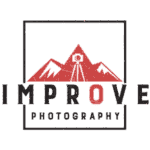Giving It Your Best Shot: Top Tips for Setting Up a Photography Business
It is one of the most rewarding and fascinating hobbies in the world, and any keen photographer could be forgiven for thinking about giving up the day job and setting up business as a professional. But no business is without its complications, and a creative business like photography is not exempt from the hard work and planning that have to go into a successful launch.
Business Plan
Creative people like photographers are not always the best when it comes to setting out every detail in a disciplined way, but a business needs a business plan. It is tempting to skip it and to get straight on to the fun side of running the business, but that is a recipe for hitting the rocks sooner rather than later. There are templates available online to guide you through the steps of writing a business plan; you should use them. Most of the following items will need to be included.
Market
You will not sell your work unless you target it to a particular market, so decide critically where your best hopes lie. You may be confident enough in your ability to take on a crowded market like weddings, but first consider if there is an easier niche that you could fill—pet photographs, for instance, or family photo shoots for grandparents.
Initial Finance
Work out how much it is going to cost you to set up your business. The equipment you already possess as an amateur is unlikely to be enough. You need top quality cameras and lenses, with spares of everything. If you plan to work in a studio you will need lighting and a deposit on the lease. You will also need the best photo editing software and a good printer, even if you won’t be printing the final albums in-house.
Where is the money is going to come from to meet those setting up costs? You may have savings or supportive family and friends or hope to get a bank loan. If you are borrowing, even from family, you should have a written agreement to cover repayments. A bank would expect to know when you are going to start making a profit, so work that out realistically.
Running Costs
You need to know how much it will cost to run your business. You will have advertising costs and a website to run. You may be paying rent for a studio. You will certainly have the costs of running a reliable vehicle to get to your venues. Your printed projects will need to be at the top of the range.
Don’t neglect your insurance. Businesses fail for all sorts of reasons, but you don’t want yours to fail because of sheer bad luck. It is tempting to cross your fingers and hope that a generic business policy will do, but you may find that the small print doesn’t cover your particular circumstances. Instead look for an insurer who specializes in small businesses, with cover such as the photographic equipment insurance by Next Insurance.
Also, you need to eat. Can you expect your partner to support you or will you have to combine your business with another job during the lean years ahead?
Pricing
When you have worked out your costs (both your running costs and a schedule for repayment of your startup costs) you can look at your pricing. A good starting point for pricing is to decide what an hour of your time should be worth and calculate the total number of hours that would be involved in a typical shoot, from first contact to completion. You also need to be realistic about your chosen market and to research what your competitors are charging.
Brand
When you are ready to launch, you need a strong and distinctive presence in the market. Invent a memorable name for your business and double-check that no one else is using it. Set up a website with examples from your portfolio designed to appeal to your market. Establish a presence on Facebook, Instagram, and a couple of other social media sites. Above all, network, show up at local events, and take every opportunity to mention your availability and to share your business card.
One Step at a Time
Setting up any business can be a slow process, and involves a lot of hard work. To get established in a competitive market like photography can be tough, but the fact that there is so much competition shows that it can be done—and the rewards for success are much greater than money.
Callum Lynch is a business consultant working with startups in fitness and creative fields mostly. He's on-hand to offer information on marketing, insurance and all the legalities.

